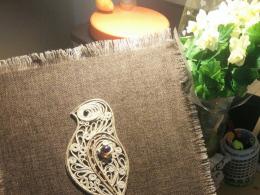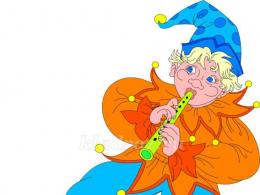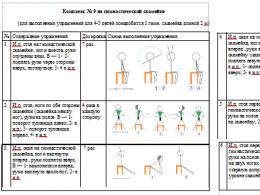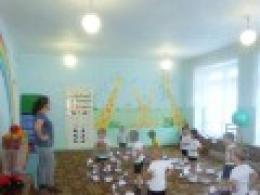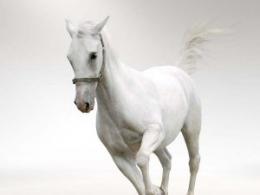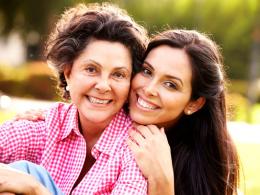What to eat after training and after how long. What proteins are more useful after training? The value of proteins and carbohydrates in a late dinner
After training in the gym, the body expends a large amount of energy. The amount of calories lost depends on the type of activity and on the body weight of a person. An athlete of average build with normal body weight loses up to 1000 kcal in 1 hour of intensive training. Is there a need to replenish the expended resources of the body, if the goal was to lose weight?
Why eat after a late evening workout
Whatever time of day the training takes place, in the morning or in the evening, after it you always need to eat. In the process of playing sports, the body spends 70% of protein and 30% of carbohydrates.
What to eat after a workout in the evening before bedtime - a detailed menu and calorie calculation can be found in our article
In order not to provoke the development of a catabolic syndrome after training in the evening, the decomposition of the connective tissue of muscles, bones, blood vessels, the lack of protein and carbohydrates must be replenished: it is recommended to eat, even before going to bed, a little lean meat with vegetables.
Nutritionists do not advise eating at night, but this does not affect active people who work out in the gym. They have a different diet. After a late dinner, it is advised to go to bed in half an hour.
The value of proteins and carbohydrates in a late dinner
During active cardio and strength training, a rupture of the connective tissue of the muscles occurs.. The athlete receives microtrauma. After some time, the tissues are restored, increasing their volume. The body is transformed, it becomes more embossed. Successful muscle regeneration requires protein and carbohydrates.
After a workout in the evening, there is a “carbohydrate window” during which you need to eat or drink something containing protein: low-fat meals are preferred before bedtime. The "carbohydrate window" is a period of 2 hours.
All the calories that enter the body with food will be spent on restoring the spent resources.
They do not contribute to the increase in body fat: a late dinner will not negatively affect the figure.
What foods to eat after a workout before bed
Dinner is considered effective if the food is taken within 2 hours after training for half an hour before bedtime. The diet depends on what the goal is to exercise: an increase in muscle mass or weight loss. 
| What to eat after a workout at night before bed | |
| weight loss | Building muscle mass |
| Drinks: still water, freshly squeezed juices | Drinks: protein shake half an hour after training |
| Lean beef, chicken fillet, seafood, fish | Chicken, baked or fried, young veal, pork, seafood |
| Legumes, corn, non-starchy vegetables | Quail eggs |
| Protein omelette | Rice, buckwheat |
| Low-fat cottage cheese, kefir | Cheese, cottage cheese, dairy products |
| Tea with mint, chamomile, jasmine | |
Note! In order for training to be effective, without compromising health, 30 minutes before class, eat carbohydrate-rich food: muesli bar, oatmeal, yogurt, fruits. The stomach is not overloaded: the snack is made light.
Foods to Avoid After a Workout
After a workout in the evening, not wanting to cook and not knowing what to eat, many make do with sandwiches. Both for weight loss and in order to gain weight, do not eat fast food, even during the “carbohydrate window”. Before going to bed, it is not recommended to eat pasta and sausages.
Products contain fast carbohydrates that will not saturate the body. Food will not contribute to the process of restoring energy balance. Dishes with mushrooms, roast meat, high-calorie confectionery are left for lunch. 
Alcoholic drinks, coffee, cocoa, hot chocolate - all this is prohibited.
The body is energized after exercise. Additional tonics will only harm him: they will increase pressure, aggravate the destruction of muscle tissue, and negatively affect the emotional state.
How many calories should a late dinner have?
For an active person who goes to the gym 3-5 times a week, dinner is normally 500 kcal. If there is a desire to lose weight, then the rate is reduced to 280-300 kcal.
When building muscle mass, the calorie content of dishes is increased to 800 kcal:
- 50% of the calories of the evening meal are proteins;
- 25% - carbohydrates;
- 15% - fiber;
- 10% - fats.
In recipes for culinary dishes, the calorie content, the amount of protein, fat, and carbohydrates contained in it are always indicated.
After training, dinner is prepared from the following dishes:

Tea without sugar contains no calories. 2 tsp sugar will increase the calorie content of the drink up to 5 kcal. Fruit juices are rich in carbohydrates, but their value is high, an average of 48 kcal. Dried fruits will increase the calorie content of dinner: raisins, apples, dried apricots. Products are rich in carbohydrates: 100 g of dried fruits contain on average up to 250 kcal, 2 pcs. dried apricots weigh 10 g, which is 25 kcal.
How to Calculate Calories for a Late Dinner
The Harris-Benedict formula is used to calculate calories. Francis Benedict and James Harris studied metabolism in the human body: the effect of metabolic rate on physiological characteristics. 
A man weighing 80 kg, 190 cm tall, 30 years old should consume 1813.26 kcal/day. Calculation: 88.362 + (13.397 * weight) + (4.799 * height) - (5.677 * age).
The daily diet of a woman weighing 70 kg, height 160 cm, age 30 usually contains 1013.07 kcal/day. Calculation: 447.593 + (9.247 * weight) + (3.098 * height) - (4.33 * age).
The indicators are adjusted by the activity index:
- 1.2 - small;
- 1.375 - inactive lifestyle;
- 1.55 - visit the gym 3 times a week;
- 1.725 - heavy loads;
- 1.9 - for an active person who does daily strength training.
The calorie intake of a man who visits the gym 3 times a week is 2906.653 kcal / day. The calorie norm for a woman with identical activity is 1570.2585 kcal / day. The calculation is only suitable for healthy people who do not have chronic diseases.
Dinner is 20% of the daily caloric intake. For men, it is 581.33 kcal, for women - 314.0517 kcal. Physiologists leave an error interval of 42.6 kcal for men, 40.2 kcal for women. These calculations are used to maintain normal weight.
It's important to know! There are many formulas for calculating daily calorie intake. The indicator varies by 10-15%. The final figures are distributed according to the amount of food intake: breakfast accounts for 25% of calories per day, lunch - 35%, dinner 20%. For an afternoon snack and 2 breakfasts leave 10% each.
Healthy Post-Workout Dinner Recipes
After exercising in the gym, not many people want to cook dinner. Cooks offer simple recipes for an evening dinner of 500 kcal.
Salmon with pesto sauce
Ingredients: fillet 2 pcs.; ½ st. rice, broccoli - 150 g. 
For the sauce: 1 bunch of basil, hard cheese - 50 g, olive oil - 100 g, cedar nuts - 50 g, garlic 2 cloves, ½ lemon, salt.
Cooking method. The sauce is made ahead of time and kept in the fridge. To do this, all the ingredients must be ground in a blender. Fillets are fried on a grill pan. Ready hot fish is smeared with "Pesto". Rice is washed and boiled for 20 minutes. Boil broccoli for 10 minutes, grease with sauce.
Chicken fillet with green beans
Ingredients: fillet 2 pcs., salt, ginger, onion, 1 tsp. soy sauce. For garnish: 150 g green beans, 1 garlic clove, vegetable oil.
Cooking method. The fillet is marinated in seasonings, covered with foil, baked in the oven for 20 minutes. Beans are boiled for 7-10 minutes, seasoned with salt, oil. For chicken or as a side dish, Pesto sauce with the addition of ½ tomato is well suited.
Salad with bacon
Ingredients: 4 things. bacon, lettuce 2 bunches. For the sauce: olive oil 1 tsp, balsamic vinegar - 1 dessert spoon, 1 tsp. mustard seeds, ½ tsp. Sahara. 
Cooking method. Prepare the sauce by mixing all the ingredients. Chop the salad, season with sauce. Bacon is grilled and served with bran buns.
Important to remember! After training in the evening, before going to bed, flour products are not prepared for dinner, but it is allowed to eat some durum wheat pasta. As a supplement, seafood is served, which will saturate the body with protein.
A late dinner after a workout is an important part of the diet. It is not recommended to ignore it. Sandwiches and hamburgers will satisfy your hunger, but the body will not receive the proper amount of protein and carbohydrates. Dishes for the evening are thought out and prepared in advance so that after playing sports there is no temptation, there is fast food.
A useful video on what to eat after a workout in the evening before bed:
Fitness trainer tips - what to eat after a workout in the evening before bed:
Shutterstock.com
Improper nutrition before and after training can not only cause discomfort during exercise, but also make it useless or even harmful. Nutrition can vary depending on your goals. But if you're not a bodybuilder, forget about hard "drying", which is so actively discussed in many forums. This is a competitive training regimen that has nothing to do with fitness and wellness programs.
When and what to eat before training
In sports medicine there is such a thing as. Nutritionist and international fitness trainer Olga Perevalova recommends one hour before workout eat some grain bread, or any fruit, or a cheese sandwich, drink juice or a glass of tea.
“Even if an athlete trains at 5 am, he will never start the day without breakfast,” says nutritionist Olga Perevalova. “Otherwise, there will be no sense in the lesson. If you are losing weight, then you need to understand that trying to burn fat on an empty stomach is useless". The body needs to be started like a car: just as a car will not run without fuel injection, so the necessary processes in the human body will not start without carbohydrate loading.
A slightly different approach is offered by nutritionist Ekaterina Belova. Regardless of the type of load and training goals, she recommends not eating carbohydrate foods (grains, vegetables, fruits) one and a half to two hours before class, and proteins and fats two to three hours. “When you start exercising, the food should already pass from the stomach to the intestines,” says Ekaterina.
Carb loading, in her opinion, only makes sense if you have not eaten for a long time or did not eat at all in the morning. If you eat enough during the day and make sure that the breaks between meals are no more than five hours, then it is better not to eat anything one and a half to two hours before class.
Another story is yoga. The best time to practice is in the morning and all instructors recommend do yoga on an empty stomach. Even my little practice experience confirms that any food a couple of hours before the lesson interferes with comfortable practice. However, Olga Perevalova recommends having breakfast in this case too. But breakfast should not just be light, but very light - a glass of tea or water with lemon juice and a spoonful of honey.
Can I eat during a workout
I’ll clarify right away - this unexpected item appeared here only for those who prefer long workouts. For example, for long-distance runners.
When I took part in a 10k race, more experienced runners I knew took out small packets from their pockets in the middle of the distance and quickly sucked something jelly-like out of them. " Carb supplements are really good for long intense workouts- says Ekaterina Belova. — Energy resources need to be replenished. Those who choose this type of exercise tend to have a little body fat and it is not so easily included in the process. It's easier to add carbs and move on."
Nutrition after training
It all depends on your type of load. If you do cardio, for example, just run, then your the main task is to restore glycogen stores, the so-called reserve carbohydrate. “During training, you first consume blood glucose, then glycogen stores, and only then adipose tissue is connected,” says Ekaterina Belova. - If you do not restore glycogen stores immediately after exercise, then this in itself will take a very long time. You will slow down your metabolism and reduce your stamina.” So if you're starving after running, don't expect progress.
Ekaterina Belova recommends 15 minutes after class drink a milkshake, smoothie, water with carbohydrates, eat fruit or drink freshly squeezed juice. “By the way, this is the only moment when freshly squeezed juice, rich in quickly digestible carbohydrates, is really useful,” says Ekaterina Belova. “In other cases, slow carbohydrates are much preferable.”
If you are interested in strengthening muscles or building muscle mass, then in nutrition after training, your second task is to comply with metabolic window rule. Within two hours after class, be sure to eat something high in protein. It can be a protein shake, cottage cheese or lean meat, poultry or fish.
Ekaterina Belova recommends reducing this period of time up to one hour: “If you do not eat in the first hour, then continue to postpone it. While driving through traffic jams to the house, while deciding family matters and preparing dinner, four hours will fly by unnoticed. It’s better to take cottage cheese with you or have dinner after a workout in a cafe. ”
The point of the metabolic window rule is, first of all, that the muscles recover properly. If you don’t “feed” them, there will be no result even from the most hard work. and rest and nutrition after exercise. “If you don’t eat anything after class, the muscles begin to atrophy, weakness and malaise appear,” says Olga Perevalova.
In addition, proper nutrition after training allows you to properly start metabolism for the next day. “If you burn 400 kcal or more per hour of fitness, your metabolism accelerates by 8-10 percent and returns to its previous state only after a day,” says Olga Perevalova. “And if you eat right all the time, you lose weight and improve body composition.”
And of course, post-workout nutrition excludes all fatty, fried, sausages, flour and sweets. This can result in excess weight and cellulite, even with intense training. But by and large, nutritionists recommend refusing these products not only after fitness, but always in general.
How do you organize meals before and after training?
You can find delicious and healthy recipes on our new service!
If you're trying to lose weight, you probably know that a reduced calorie diet is essential to reach your goals. And also what you eat after training will play a decisive role in losing weight. Appropriate post-workout meals will provide the body with the nutrients you need to restore while maintaining the overall calorie deficit you need to lose weight. The combination of complex carbohydrates and protein with a minimum amount of fat is important, which you get from lean animal foods (meat, dairy products).
The importance of post-workout nutrition for weight loss
Intense training, strength and lead to muscle breakdown and glycogen depletion. Consuming a combination of protein and carbohydrates within forty minutes after training maximizes the recovery of muscle glycogen and muscle tissue. Sufficient glycogen levels play an important role in preparing for future workouts. Since your muscles have a high metabolic rate, maintaining muscle mass will help maintain your metabolism as well as lose fat.
What to eat after a morning workout for weight loss?
Classical breakfast of eggs and toast- Nutritious food after training at any time of the day.
- Eggs are a source of fast-digesting protein and contain many important nutrients such as vitamin A and zinc;
- and whole grain toast contains complex carbohydrates, including fiber, and B vitamins.
Although egg yolk contains fat and cholesterol, eating two yolk eggs a day will not increase blood cholesterol. If you want to reduce calories and get the nutritional benefits of yolk, consumption of one whole egg with two egg whites is a reasonable compromise.
- Chicken fillet, turkey, beef, whole grain bread and tofu are all healthy post-workout snacks, and whole grain bread provides a source of high-fiber carbohydrates that will help keep you energized longer.
- Vegetables provide a variety of vitamins, at a low calorie content with a high content of solid fibers, and brown rice- a source of complex carbohydrates.
The best food after a day's workout for weight loss
Proper (complex) carbohydrates need to be replenished post-workout because they will be used as the body's main source of fuel. Yet again, choose high fiber carbohydrates (whole grain bread, brown rice, vegetables) paired with protein (eggs, milk, meat, legumes, fish), To help .
Avoid simple carbohydrates after training, and in general, during the day, if you want to lose weight. White breads, pastries, and sugary candies are devoid of fiber and provide a quick burst of easily digestible carbs, raising blood sugar levels that quickly fill you up but leave you hungry after an hour. And it won't help you lose weight.
Fats Should Not Be Included in Your Post-Workout Meal, because they slow down the breakdown of proteins, increase the calorie content of food, and instead of recovering, the body spends effort on digesting fats. It is no secret that when losing weight, fats should be reduced in the composition of dishes, but not completely excluded. Proper unsaturated fats are able to remove free fat from the body, thanks to their chain of molecules. The paradox is that fats help you lose weight.
Remember, when losing weight, you need to be afraid and exclude simple carbohydrates, and remove complex ones from food in the late afternoon.
What can you eat after a workout in the evening for weight loss?
Late training time your preference in food should be animal proteins– meat, dairy products and vegetables. Vegetables go well with meat, do not burden the digestive system, are easily digested, without provoking the deposition of fats. In addition, vegetables are low in calories, large portions have a low energy value. In the evening, after a workout, there should not even be fruits - this is sugar. Even if your training ended very late, don't starve before bed, do not go to bed hungry, you will not lose fat, and your muscles will suffer. You still need proteins, if you have little time for a meal, bring low-fat yogurt, kefir or milk, and low-fat cottage cheese (but not fat-free).
Conclusion

- Eating more calories will slow down your weight loss efforts, so focus on nutrients that promote simultaneous muscle recovery and fat loss.
- Consume when losing weight 21 calories for every kilogram of body weight.
- Eat often, every three hours, keep your metabolism high.
The main mistake when losing weight is starvation, which slows down the breakdown of adipose tissue to provide you with energy.
Useful video about nutrition after training for weight loss
We eat to feel good, move and be productive. To do this, you need to eat a balanced and varied diet - that is, all macronutrients (proteins, fats, carbohydrates) and micronutrients (vitamins, minerals) must enter the body daily:
- Proteins are a building material.
- Fats are a strategic energy store, and carbohydrates are tactical (stored as glycogen in the muscles and liver).
- Vitamins and minerals regulate biochemical reactions in the body and must be supplied with food.
Particular attention should be paid to the diet if a person trains, since good health and the training process depend on this.
How much to eat
The amount of food depends on individual qualities (age, health status, training experience) and goals. To roughly understand in which direction to move, remember the energy balance:
- If the goal is to lose weight, then you need to spend more energy than comes from food.
- If the goal is to gain weight, then you need to eat more than you spend.
- Maintaining weight - the energy costs are equal to those received.
- Increase in muscle mass - you need to control the diet as a whole and pay special attention to protein intake.
How to understand how much energy is spent and how much food you need
There are two ways:
1. The exact method - comparing the energy received with the energy consumed
To do this, we count calories - units of energy. Each product has a certain calorie content, and in order to find out how much energy is supplied daily, you need to keep track of food.
Simple and convenient option:
- Download an app like MyFitnessPal or FatSecret.
- Enter parameters there - weight, age, physical activity and goal. The application will independently calculate the daily calorie content, which will need to be adhered to.
- Bring in all food throughout the day. Applications have already created databases with all kinds of products. The system summarizes the data, and it immediately becomes clear whether you fit into your plan or something needs to be adjusted.
2. Intuitive method
An option for the advanced - you need to listen to the body, which knows when it's time to eat (hunger) and how much food you need (satiation). Three important points:
- Eat when you feel like it and don't eat when you don't feel like it.
- Chew slowly, then the signal about satiety from the stomach will have time to reach the brain. You stop eating on time and do not overeat.
- Make sure that the diet is balanced during the day - for this you can keep a food diary, as in the first method, but in a more free form.
What exactly to eat before and after training
When planning a diet before and after training, you don’t need to invent anything, you need to understand that the main goals are a full-fledged workout, during which you feel strong, and the restoration of spent resources after it ends.
General rules
- Eat carbs
During strength, speed-strength (sprints), explosive training, we mainly spend carbohydrates stored in the form of glycogen. On average, the body absorbs and uses about 400 g of carbohydrates per day. And given the fact that carbohydrates are needed not only for movement, but also for the functioning of the nervous system, they must be eaten daily. So you will feel cheerful throughout the day and in training.
Main sources: cereals, bread, pasta, fruits.
- Eat fat
The body chooses fats as its main source of energy during cardio workouts - for example, easy running, in which you can talk and not be out of breath. Fats are needed for movement and synthesis of vital hormones. For example, testosterone, without which muscle mass will not grow.
Main sources: meat, fish, legumes, oils, nuts.
- Eat squirrels
It is the main structural component of cells. Proteins are needed for the maintenance of body tissues, muscle growth and the formation of antibodies that are responsible for maintaining immunity. During exercise, muscle fibers are destroyed, and are restored when the body receives protein from food.
Main sources: meat, fish, seafood, tofu, nuts, eggs, dairy products.
1. Eat a full meal 1.5-2 hours before class. So the body has time to digest food, and you will have strength.
- fruits, granola (carbohydrates) and cottage cheese (protein, fats);
- vegetables, bread (carbohydrates) and eggs (protein, fats);
- vegetables, rice (carbs) and turkey (protein, fat).
2. If there is no time, then eat any fruit 30-40 minutes before the start. Carbohydrates from the fruit are quickly absorbed, and the forces will be trained.
3. Don't eat a lot before your workout. Our body cannot digest food and do squats at the same time - it's too difficult. He will choose squats, and everything that you ate will roll in the stomach - this will cause discomfort (heaviness, nausea).
4. Don't Starve. You will not have the strength, the training will be ineffective.
5. Don't eat immediately after class. At the time of training, the body minimizes the process of digestion, as this is an extra expenditure of energy, which is more profitable to spend on physical activity.
In particular, the concentration of the hormone insulin, whose main function is to store carbohydrates in the form of glycogen in the muscles and liver, as well as to synthesize proteins and fats, decreases. This is logical, because in training you need to spend energy, not save.
To activate the reserves, the hormone - the antagonist of insulin, glucagon, is included in the work. It increases the concentration of glucose in the blood, using pre-deposited glycogen for energy synthesis. The whole process takes 20 to 30 minutes, and the same time it takes to return to the digestive process. If you eat earlier, then there may be heaviness in the stomach.
When it comes to weight loss, diet plays the most important role. Exhausting sports, pills, teas for weight loss are only an addition to your goal, but will not replace the correct approach to food. What should be the nutrition after a workout for weight loss? This question is asked by many beginners of the training process, when they do a long time in the gym and do not see the result of their efforts. By listening to the valuable recommendations of nutritionists and bodybuilders, you will achieve good results.
What should be the nutrition after training
Physical activity allows you to spend a lot of energy and calories. With proper nutrition, fat reserves will be consumed at lightning speed. If your diet after an intense workout for weight loss consists of fatty foods, then the weight will not decrease. The consumed fats need to be recycled, for this you need to organize a deficit: eat less and spend more calories. Under such conditions, the body will be forced to consume its fat reserves.
How to eat after a workout? When you stop exercising, you need to force the body to continue burning excess fat, but protein is necessary for muscle renewal, so eat dietary protein food after training. These include: fat-free cottage cheese, chicken breast, turkey, eggs, vegetable salad. Such products do not contain excess fats, harmful carbohydrates.
What can you eat
Physical activity in the gym involves the consumption of fat, so there is no need to rush to eat after class, let the body take energy from its accumulations. What should you eat after a workout to burn fat? The way you eat after exercise is directly related to:
- on the type of load;
- exercise intensity;
- time of day of training (evening or morning);
- duration of classes;
- characteristics of the organism;
- gender and age of the person.
Bodybuilders advise eating a dish according to the ideal recipe, in which the following ingredients are mixed:
- sugar - 2 tbsp. l.;
- banana - 2 pcs.;
- cottage cheese - 200 gr.

Food after cardio
At the end of the cardio load, intensive calorie burning occurs, the metabolism accelerates, due to which fat burning starts. In order not to disturb this process, it is necessary to follow the correct approach to nutrition after training for weight loss. Only competently combined exercises with a diet will give a good result in the fight against hated kilograms, and will affect the growth of muscle mass.
Many are concerned about the question: is it possible to eat cottage cheese at the end of physical activity? Experienced athletes consider this product one of the most important in the post-workout diet. Imagine what and when you can eat after a workout in the form of a table:
| Type of load | Times of Day | How much not to eat after a workout to lose weight |
|||
| 1. | Banana, kefir, tea with honey. | Cottage cheese, boiled meat, buckwheat. | |||
| Green apple, egg, buckwheat. | Boiled fish, rye bread, brown rice. | ||||
| 2. | Swimming | Boiled chicken breast, buckwheat, vegetables. | Chicken eggs, low-fat cottage cheese, greens, vegetables. | ||
| Rice, stewed vegetables, egg. | Lean beef, buckwheat, fresh vegetables. | ||||
| 3. | Race walking | Cottage cheese, yogurt, milk, low-fat cheese. | Fish, fresh vegetables, banana. | ||
| Vegetable dinner: cucumber and cabbage salad. | Vegetables, any fruit. | ||||
| 4. | Aerobic exercise | Citrus fruits: oranges, grapefruit. | Buckwheat, yogurt, turkey breast. | ||
| Yogurt, steamed vegetables. | Boiled potatoes, boiled chicken. | ||||

Nutrition after strength training
If you decide to add weight lifting and strength training to your diet, you need to know when and what you can eat after such a workout. The task of a losing weight athlete is not to give the body additional energy so that it uses up its body fat to the maximum. What products are needed to be taken after a workout for weight loss, we will present in the form of a table:
| Fruit low in starch and sugars | Fast Digesting Protein |
|
| Whey isolate (available at health food stores) |
||
| Mandarin | ||
| Grapefruit | Braised beans |
|
| Boiled chicken eggs |
||
| Grape | Kefir and other dairy products |
How long after a workout can you eat to lose weight
Within half an hour after the end of classes in the rocking chair, a carbohydrate window sets in, in which the food entering the body is spent on the speedy restoration of vital resources. When should you eat after a workout? Many athletes who want to lose weight start eating after a workout in the gym in order to have time to invest in this time and properly close this process. For quick weight loss, and not muscle gain, you need to consume proteins and carbohydrates. The next regular dinner after a workout comes in a few hours.


